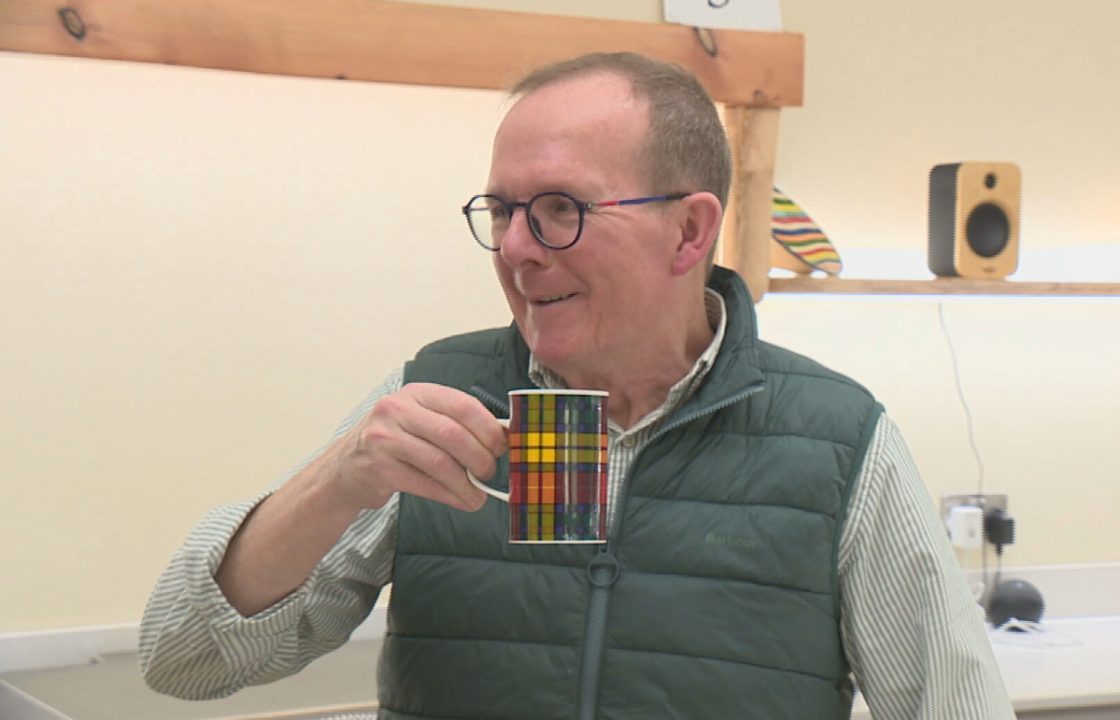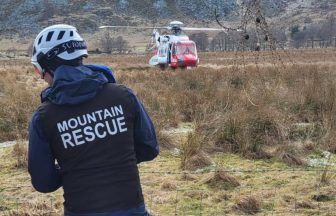Scientists in Dundee are confident they are on the cusp of slowing the progression of Parkinson’s.
People living with the condition have met with researchers at Dundee University who are at the forefront of developing new therapies that could slow, stop or even prevent the disease.
Brendan Hawdon was diagnosed with Parkinson’s seven years ago. He’s since had to give up work, but hasn’t given up on a cure.
The father-of-three is about to start a clinical trial of a drug designed to treat the genetic form of the disease that he lives with at present.
He said: “They are testing the tolerability, the efficacy and the safety of a particular pill that will hopefully slow down my progression. It’s quite a commitment. It means I have to take tablets for 18 months. I’m very hopefully that this trial will have a positive result.”
Mr Hawdon currently depends on drugs developed 60 years ago to manage his symptoms but new discoveries in Dundee are offering hope for him and thousands of others that Parkinson’s could be paused and perhaps eventually become a thing of the past.
Dr Esther Sammler, Brendan’s consultant, translates the scientific discoveries from bench to bedside.
She explained: “Genetic changes that are found in people with Parkinson’s Disease activate the enzymes, switch it on and then hyperactivate it and put everything in to fast, accelerated motion.
“A lot of work has gone into developing kinase inhibitors, so tracks that put a brake on this enzyme to slow it down to normal levels and these are the kind of inhibitors that we are now testing in clinical trials including at Ninewells Hospital.”
Dundee is a testbed for therapies that could slow, stop or even prevent Parkinson’s.
Professor Dario Alessi at the University of Dundee said: “Within the next year or so we should know if these potential drugs will slow the progression of the drugs down and this is something this is something that’s never been achieved so far.”
He continued: “If these tablets end up working the plan would be to test them in people before they get Parkinson’s disease as a proactive measure. We’re still a way from that but that’s the ultimate dream of our researchers not only to treat the disease but to prevent people getting it in the first place.”
Parkinson’s doesn’t just affect the person with the disease but also their family members.
Jo Goodburn, Brendan’s wife, said: “The thing that we’ve learnt through these amazing scientists in Dundee being so open with us is and trying to help us understand the disease, in return what they really need is people prepared to take part in trials.
“If we don’t get enough people taking part in trials, we’ll never get these potentially completely life changing drugs to market.”
Some 13,000 people in Scotland have Parkinson’s and 30 are newly diagnosed every week.
But with half of Parkinson’s nurses in Scotland due to retire by 2030 and a shortage of specialist doctors, physios and speech and occupational therapists, there’s warnings of a care crisis.
Tanith Muller, Parkinson’s UK Scotland, said: “Both for the sake of those living with Parkinson’s, who really want to maximise the best time that they have, but also because of public sector budgets, NHS boards really need to look at their workforces and make sure that it is ready to meet the challenge of more people being diagnosed with Parkinson’s and those living longer.”
Follow STV News on WhatsApp
Scan the QR code on your mobile device for all the latest news from around the country




























